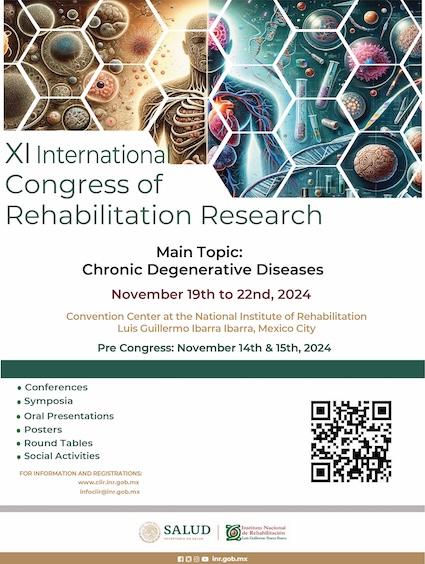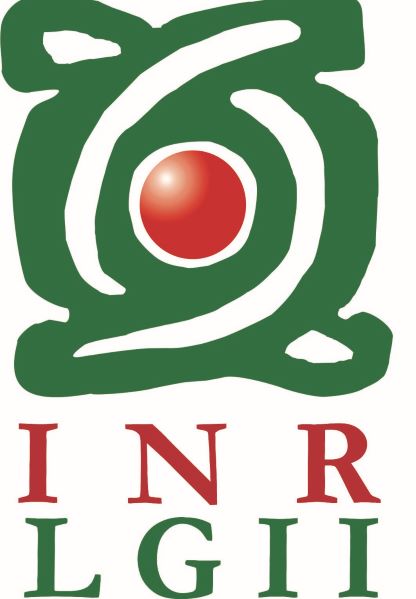
Call for Editor for End-User Engagement
The editorial board of Investigación en Discapacidad seeks to recruit an Editor for End-User Engagement. This role is crucial in ensuring that our journal's content and policies are aligned with the needs and perspectives of our diverse readership, including patients, physicians, nurses, clinical staff, carers, policymakers, and other stakeholders involved in disability research and care.
Role Description
The Editor for End-User Engagement will serve as a vital link between the journal and its end-users, providing insights and feedback on our publications, policies, and guidelines. This role is essential in fostering a collaborative and inclusive environment, ensuring our content is relevant, accessible, and impactful.
Responsibilities
1. User Feedback Collection:
- Design and implement surveys, focus groups, and interviews with end-users to gather their opinions on the journal's content and policies.
- Analyze feedback and identify key themes and areas for improvement.
2. Content Review:
- Review and provide feedback on articles, videos, and images from end-users perspectives.
- Ensure that content is understandable, relevant, and valuable for a diverse audience.
- Promote the creation of plain language summaries for all articles.
3. Policy and Guideline Development:
- Collaborate with the editorial board to develop and update journal policies and guidelines based on end-user feedback.
- Advocate for the inclusion of end-user perspectives in all editorial decisions.
- Ensure ethical engagement with end-users, particularly when involving vulnerable populations.
4. Outreach and Engagement:
- Build and maintain relationships with end-users through regular communication and engagement activities.
- Organize webinars, discussion panels, and other events to facilitate dialogue between end-users and the editorial team.
- Mentor early-career researchers or end-users interested in engaging with academic publishing.
5. Reporting and Recommendations:
- Prepare regular reports summarizing end-user feedback and provide actionable recommendations to the editorial board.
- Monitor the implementation of recommendations and assess their impact on the journal's content and policies.
6. Interdisciplinary Collaboration:
- Work with researchers from various disciplines to ensure comprehensive end-user engagement across different areas of disability research.
7. Digital Accessibility:
- Ensure all digital content and platforms associated with the journal meet current accessibility standards.
- Stay updated on evolving digital accessibility best practices and implement them accordingly.
8. Open Science Practices:
- Promote and implement open science practices that benefit end-users, such as open access publishing and data sharing.
Workflow
- Initial Assessment: Conduct an initial assessment to understand the current perceptions and needs of end-users regarding the journal.
- Ongoing Feedback: Establish a continuous feedback loop with end-users through surveys, interviews, and focus groups.
- Content Review: Participate in the editorial review process, providing input on draft articles, videos, and images.
- Policy Development: Work with the editorial board to revise and update policies and guidelines.
- Engagement Activities: Plan and execute regular engagement activities to maintain a strong connection with end-users.
- Reporting: Submit bi-monthly reports to the editorial board, summarizing feedback and recommendations.
Qualifications
- Experience in disability research or a related field.
- Strong communication and interpersonal skills.
- Ability to analyze and synthesize feedback from diverse sources.
- Passion for improving the accessibility and relevance of scientific publications.
- Knowledge of digital accessibility standards and best practices.
- Bilingual proficiency in Spanish and English.
- Familiarity with open science practices and principles.
End-User Role
Candidates should have firsthand experience as end-users, such as:
- Patients: Individuals living with disabilities who can share their personal experiences and challenges.
- Carers: Family members or professionals who provide care and support to individuals with disabilities.
- Healthcare Providers: Physicians, nurses, therapists, and other clinical staff directly involved in the care of people with disabilities.
- Policymakers: Individuals developing and implementing policies affecting disability care and research.
- Advocates: Representatives from disability advocacy organizations who work to promote the rights and well-being of people with disabilities.
Metrics for Success
The success of this role will be measured by:
- Improved reader engagement metrics
- Increased submissions from end-users
- Positive feedback from end-users on journal accessibility and relevance
- Successful implementation of end-user-driven policy changes
Global Perspective
The role requires consideration of diverse cultural perspectives in end-user engagement, recognizing the international nature of our readership and the global impact of disability research.
Application Process
Interested candidates are invited to submit their resumes and cover letters outlining how they would approach the role of Editor for End-User Engagement. Applications should be sent to indiscap@inr.gob.mx. Please include examples of previous work related to end-user engagement or disability advocacy. Review of applications will begin immediately and continue until the position is filled.
Investigación en Discapacidad is committed to diversity and inclusion. We strongly encourage applications from individuals with disabilities, members of underrepresented groups, and those with diverse backgrounds and experiences.


